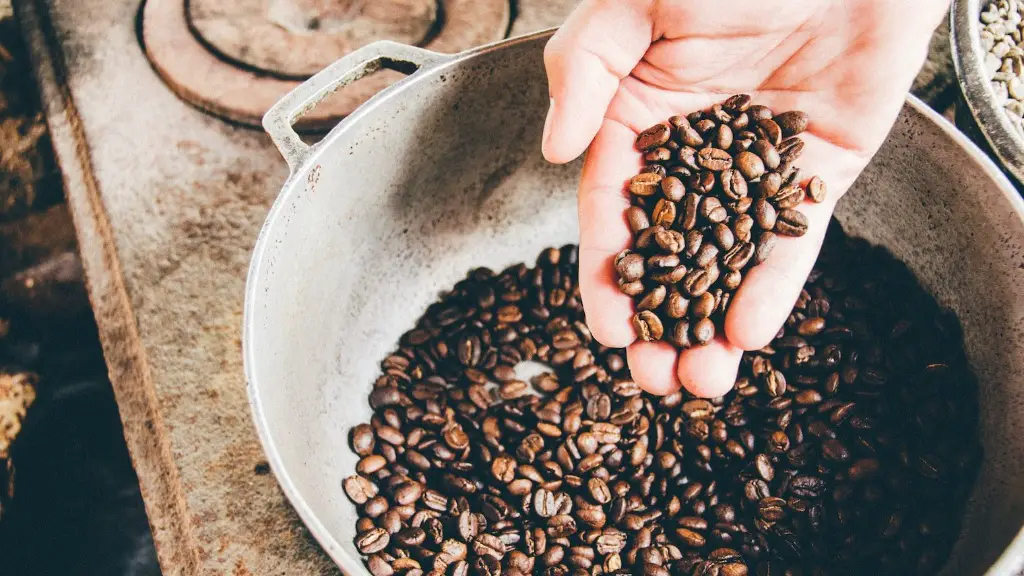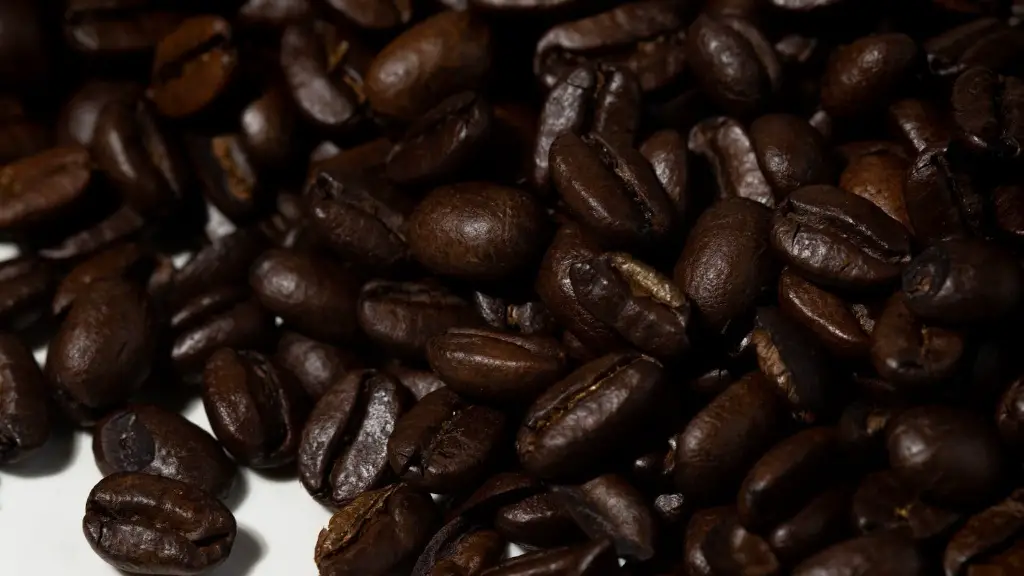Humans have been drinking coffee for centuries, but just how long has this delightful beverage been a part of everyday life? It is widely accepted that coffee was discovered in Ethiopia, and has been consumed for hundreds of years in the continent and surrounding countries. In modern times, coffee has become a global phenomenon, with it being found in almost every corner of the world.
There is evidence to suggest that coffee was first brewed as early as the 9th century, according to scholars from both the University of Alabama and Yale University. They claim that coffee was discovered by a goatherd in the highlands of Ethiopia, who noticed that his goats were showing increased alertness and energy after eating coffee beans. From there, coffee production and consumption spread throughout what is now modern-day Ethiopia, Sudan and Yemen.
It wasn’t until the 1600s that coffee truly spread to the rest of the world, beginning with its consumption in the Arabian peninsula. By the 1700s, it had become a global phenomenon, with coffee houses in thriving in many countries. Of course, it wasn’t until the invention of instant coffee in 1906 that the modern form of coffee consumption began to take shape.
In recent years, coffee has become an integral part of everyday life for many people. It has been estimated that over two billion cups are consumed on a daily basis, which equates to roughly 200 million gallons of coffee each year. Furthermore, it is estimated that 80 percent of adults in the United States consume coffee on a regular basis.
Coffee has become more than just a drink; it’s a culture. From the early days of it being used as an energizing stimulant, coffee has evolved into a symbol of culture and sophistication for many people. It has become a part of our collective identity and has been used as a tool for social interaction and bonding. There is even an International Coffee Day to celebrate the global drink.
Coffee has also gained immense popularity due to its health benefits. Research suggests that coffee can help to reduce the risk of heart disease, diabetes, and even certain types of cancer. It can also help to improve cognitive performance, by stimulating the brain and increasing focus and alertness.
It is amazing to think that humans have been drinking coffee for the past several centuries. From its humble beginnings in Ethiopia, coffee has grown to become a global phenomenon, and its popularity shows no signs of slowing down.
The History of Coffee
Although its exact origins are unknown, coffee is believed to have been first consumed more than 1,000 years ago in Ethiopia. According to legend, the first documented use of coffee was in the 9th century, when a goatherd noticed that his goats were showing increased alertness and energy after eating the beans from a caffeinated plant.
Since then, the cultivation of coffee has spread from Ethiopia to Yemen, and then to all over the world. Coffee was first consumed as a beverage in 15th century Yemen and was widely popular in the Arab world by the 16th century. By the 17th century, it had spread to Europe, where it quickly became popular throughout the continent.
However, it wasn’t until the Industrial Revolution in the mid-19th century that coffee truly became a global drink. In the 19th century, commercial production of coffee began to take off, with plantations and brands popping up in many countries around the world. As a result, coffee became even more accessible to people around the world, allowing it to truly become one of the world’s most popular drinks.
The Health Benefits of Coffee
Coffee has grown in popularity in recent years due to its many health benefits. Numerous studies have suggested that coffee can reduce the risk of developing type 2 diabetes, Parkinson’s disease, and even certain types of cancer. Also, research has suggested that coffee can help to improve cognitive performance, as well as boosting alertness, focus and concentration.
It is important to note, however, that there are potential risks associated with coffee. For example, too much caffeine intake can lead to insomnia, anxiety, and even headaches. As such, it is important to keep an eye on your caffeine intake and ensure that you are not consuming too much.
In addition, some people may find that coffee can exacerbate certain digestive issues, such as irritable bowel syndrome. Additionally, individuals with high levels of anxiety may find that consuming coffee on a regular basis can also worsen their condition. As such, it is important to be aware of any potential risks, and to talk to a doctor before making any decisions.
Types of Coffee
Coffee comes in many different forms, each of which offers different flavors and health benefits. There are several different types of coffee available, including regular, espresso, and instant. Regular coffee is typically brewed with a paper filter, while espresso is made by pressing hot water through ground coffee beans. Instant coffee, on the other hand, is simply freeze-dried coffee crystals which can be quickly dissolved in hot water.
In addition to the different types of coffee, there is also a variety of coffee-based beverages to choose from. Popular coffee-based beverages include cappuccino, latte, macchiato, mocha, and cold brew. All of these beverages are made with coffee as the base, but each offers its own unique flavor and health benefits.
The Popularity of Coffee
Coffee has grown rapidly in popularity in recent years, becoming one of the world’s most popular drinks. According to some estimates, more than two billion cups of coffee are consumed on a daily basis, which equates to roughly 200 million gallons of coffee each year. Furthermore, it is estimated that around 80 percent of adults in the United States consume coffee on a regular basis.
The popularity of coffee is part of a larger trend of people increasingly turning to coffee-based beverages in place of other sugary drinks. Many people are now turning to coffee rather than soda and other sugary beverages due to its lower sugar content and associated health benefits. Furthermore, demand for specialty coffees is on the rise, with many coffee shops now offering a wide variety of coffee-based beverages.
The Future of Coffee
Given the growing popularity of coffee, it can be assumed that the demand for the beverage is only going to continue to increase in the future. With the rise in specialty coffees, it is likely that coffee culture is going to continue to expand, with more and more people looking to explore the different flavor profiles of their favorite beverages.
In addition, there is also likely to be an increased focus on sustainability within the coffee industry. Coffee farming can be an incredibly intensive process, and many organizations are now looking to reduce their environmental impact through sustainable and ethical farming practices.
Finally, the rise of technology is likely to play a major role in the future of coffee. From automated brewing machines to mobile apps and even 3D printing, there are endless possibilities for how technology can be used to improve the coffee experience.





